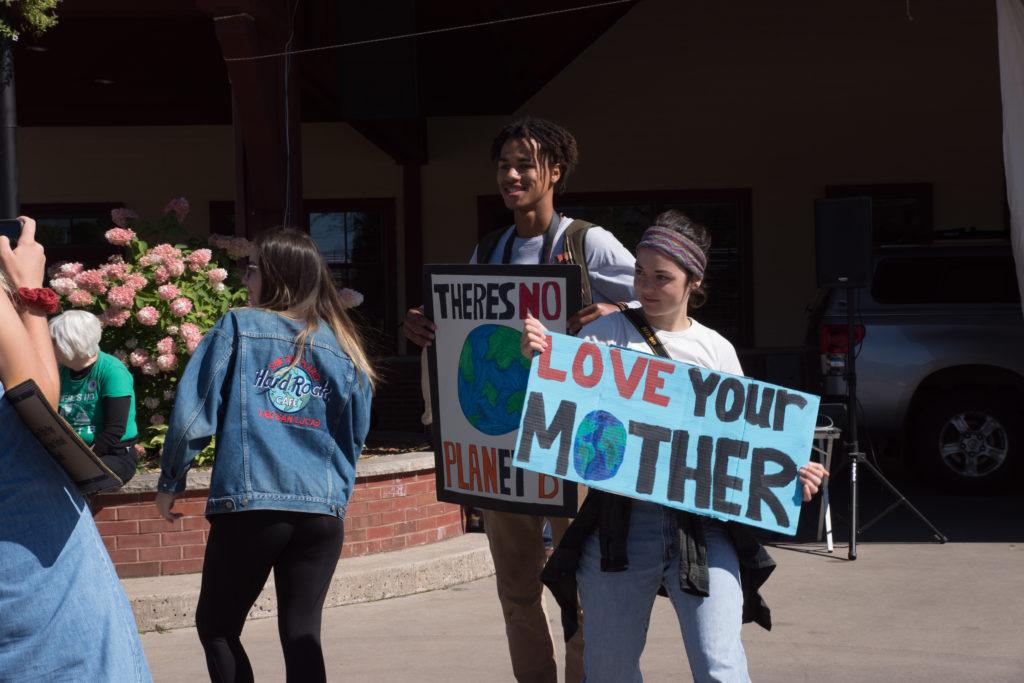Participants were heard cheering from every street corner in support of the Marquette Climate March on Saturday, Sept. 8., as part of the People’s Climate Movement, where tens of thousands of people marched transcontinentally.
In an effort to empower, educate and unite the community, the Northern Climate Network hosted the march to call for action at the local, state and national level, said event coordinator and NMU communications professor Jes Thompson. Beginning at the Marquette Commons, people marched along the multi- use path near Washington Street to Seventh Street, circled around Beer Fest at Mattson Lower Harbor and then finished at the
Commons.
Community members, NMU students and supporters from the surrounding area composed the 150 people that marched, carrying signs in support of action for climate change. One read, “the oceans are rising and so are we.”
“The idea was to bring the community together and compile resources to mitigate our impact on the planet,” Thompson said.
During the opening speech, John Forslin, who is a trained Climate Reality Leader during a program initiated by Al Gore, recommended that people relate human issues when talking to others about climate change.
“Everyone likes to save money, so you can remind them that inflating your tires and insulating houses is good for the planet and for their wallet. Help them capitalize on the technology that’s already here,” Forslin said. “There’s some truly unpleasant things that are happening, and we owe it to the people who are going to get really screwed up by what we have inadvertently done to the rest of the world.”
Senior biology major Emma Graves said her experience as an NMU student broadened her horizons on environmental issues. Her studies led her to the realization that climate change will be a major problem that her younger relatives will face.
“I go to events like this so I can learn and pass it on to people I know,” Graves said.
Events like the climate march have changed the way the Downtown Marquette Farmers Market is run, contributed to the growing amount of environmental student organizations and influenced expansion of co-operative businesses in Marquette, Graves said.
“The farmers market used to be a place for rich people to come, and now we have food stamps where people with financial issues can come and get good food,” Graves said. “I understand that it’s not the typical environmental issue but it means that everyone is becoming knowledgeable about the [climate change] issue and coming together [with solutions].”
Skandia residents Lynn and Bill Fleming marched for the future of their grandchildren because they are concerned about the climate issues they are leaving them with.
“Our six-year-old granddaughter will talk about how we live matters. She will pick up trash from the ground and say ‘I don’t want dirt on my earth,’” Fleming said. “We see this time as an evolutionary moment. There’s so much chaos, but yet from that we see [climate marches] rising up. We have to stand in hope and not give into despair.”
The positive energy the march generated did not end when the supporters left the Marquette Commons.
“The amount of people that showed this year was phenomenal. It was a beautiful day and there was really great, positive energy,” Thompson said. “When we marched on Washington Street almost every car honked. There were no
haters.”
Thompson said individual choices all play into the system, and feels confident that Marquette policy makers are listening. The next march of its kind will be during the spring in concordance with the Marquette March for
Science.

























